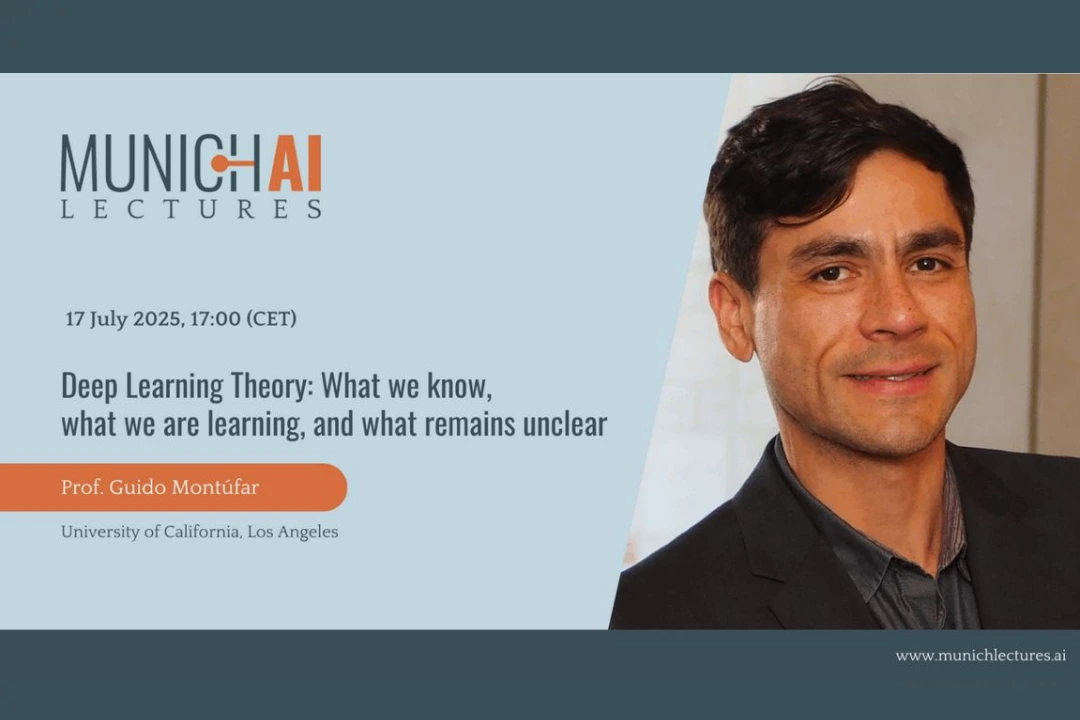
Munich AI Lectures
Deep Learning Theory: What We Know, What We Are Learning, and What Remains Unclear
Prof. Dr. Guido Montúfar, UCLA
17.07.2025
5:00 pm - 7:00 pm
LMU Munich, Main Building, Room B006
On 17 July 2025, Guido Montúfar will give a talk as part of the Munich AI Lectures series. The lecture, titled “Deep Learning Theory: What we know, what we are learning, and what remains unclear," addresses the mathematical foundations of deep learning and the rapidly developing theory behind neural networks.
The talk will cover key insights into optimization dynamics, implicit biases of learning algorithms, and generalization behavior in overparameterized models. Connections to classical learning theory, high-dimensional statistics, and approximation theory will be highlighted, alongside current challenges such as feature learning and generalization. Emerging phenomena like benign overfitting, grokking, and delayed generalization will also be discussed.
Guido Montúfar is Professor of Mathematics and of Statistics & Data Science at the University of California, Los Angeles and leads the Mathematical Machine Learning group at the Max Planck Institute for Mathematics in the Sciences. His research bridges mathematics, statistics, and machine learning. He is a Principal Investigator in the SECAI Zuse School of Excellence in AI and leads a project within the DFG Priority Program on the Theoretical Foundations of Deep Learning. His work has been recognized with an ERC Starting Grant, an NSF CAREER Award, and a Sloan Research Fellowship.
This event is open to everyone; registration is not required.